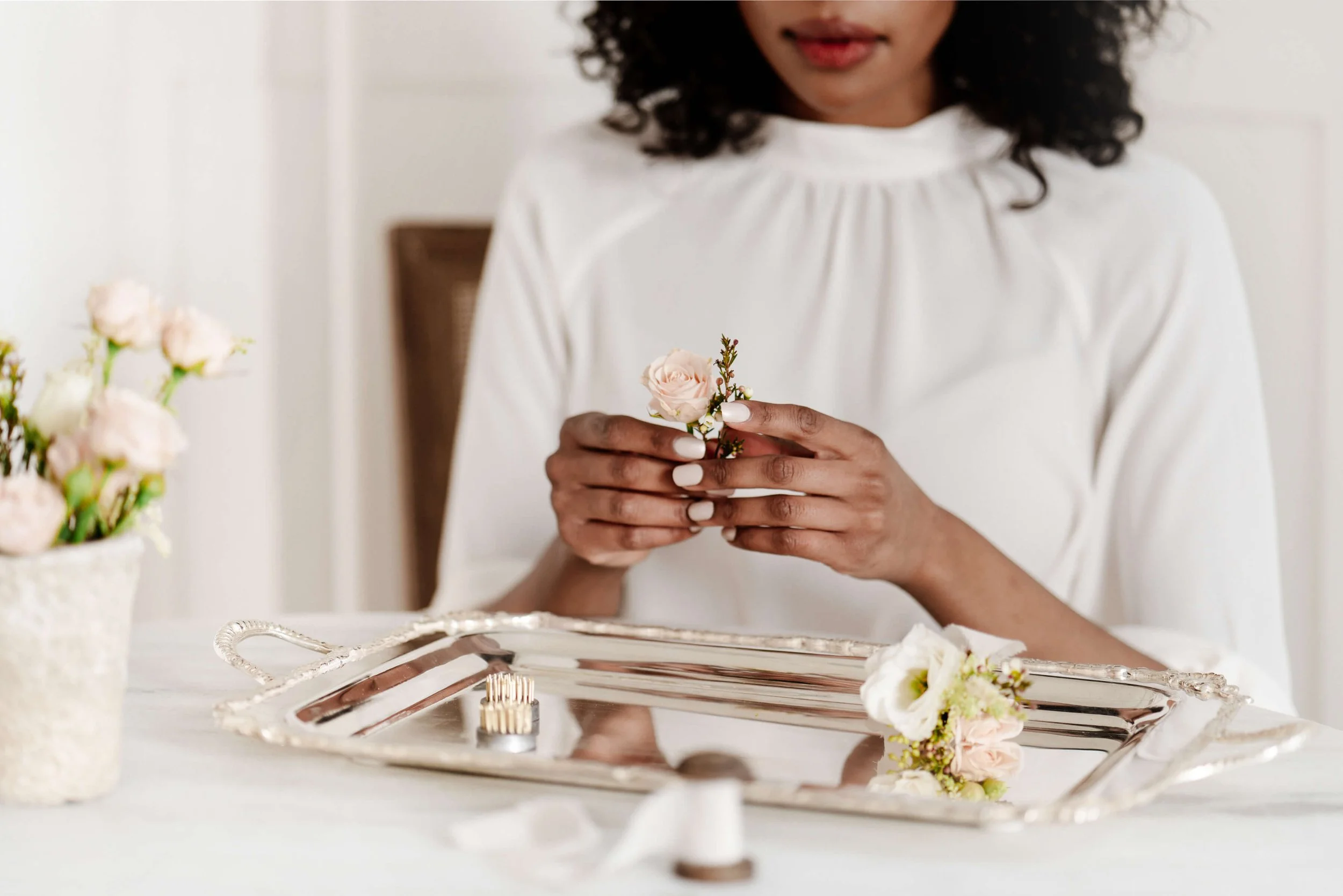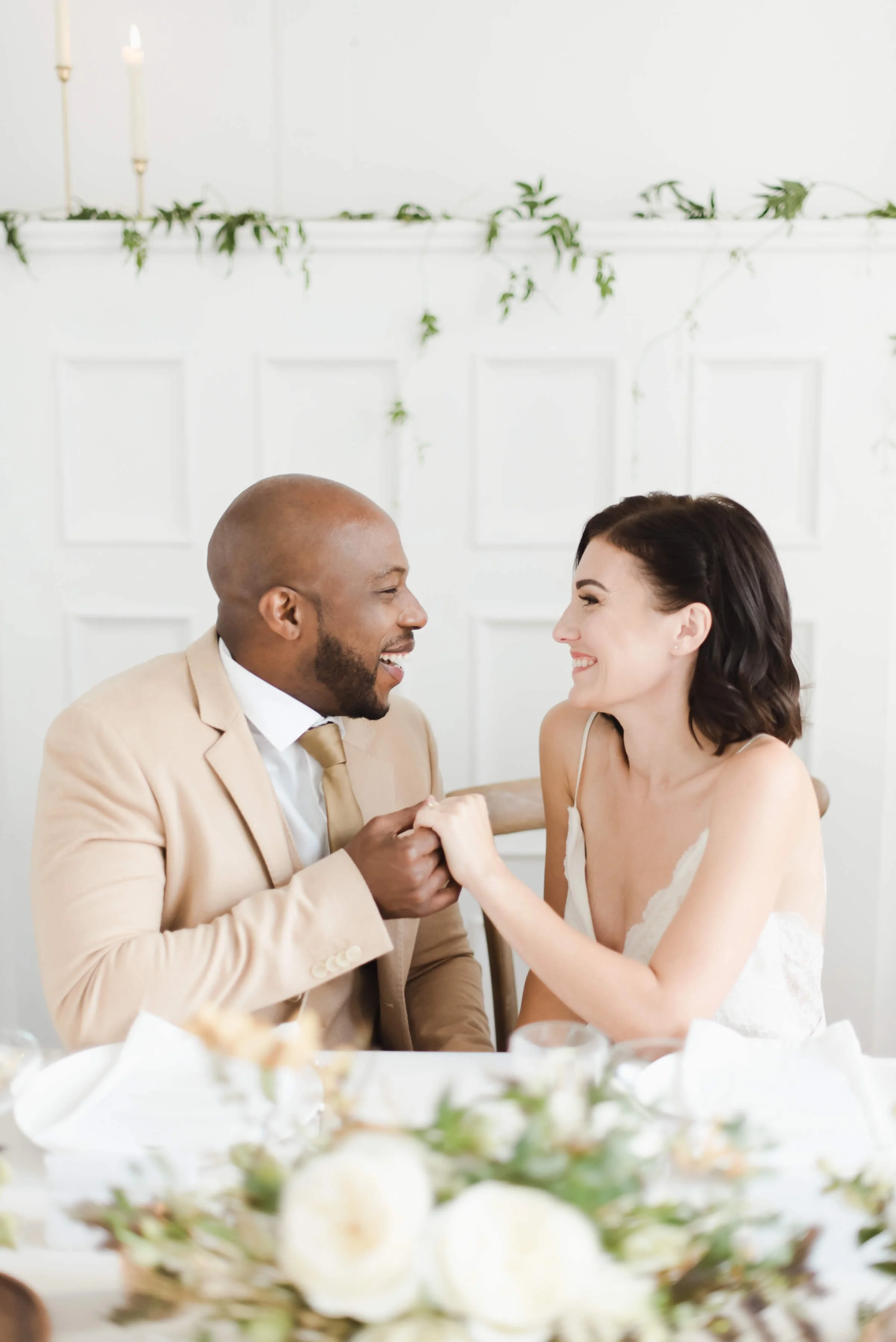How To Plan Your Wedding Without Losing Your Mind: Tips From A Therapist
Amidst all the joy and anticipation, wedding planning can unexpectedly become a source of stress. Why is it that something meant to celebrate your love can end up feeling so overwhelming? Let's explore how to make the process as enjoyable and stress-free as possible for all couples.
Why Wedding Planning Can Be Stressful
High Expectations of the Wedding
Weddings are often seen as a once-in-a-lifetime event, and there's immense pressure to make it perfect. This can create stress as you strive to meet not only your own expectations but also those of your families and society.
Financial Pressure
Wedding expenses can add up quickly, and financial concerns can strain your relationship. It's essential to have open and honest conversations about your budget from the start. Research shows that fights about money are some of the most intense and upsetting. Be sure you’re talking about your shared financial goals as a couple and how the wedding fits into that.
Family Dynamics
Family opinions and expectations can add complexity to the planning process. Navigating these dynamics can be challenging and emotionally draining. This can be particularly difficult for some LGBT couples who don’t have as much family support.
Decision Overload
There are countless decisions to make, from the venue to the flowers, and it can be overwhelming. This can lead to decision fatigue and anxiety.
Time Constraints
Balancing wedding planning with work, social commitments, and other responsibilities can leave you feeling stretched thin, leading to stress.
Now, let's dive into some practical steps to ensure that wedding preparations enhance your connection rather than strain it, regardless of your sexual orientation:
Strategies for Low-Stress Wedding Planning From A Therapist
Regularly Scheduled Wedding Meetings
Set clear boundaries for when you and your partner will discuss wedding planning. Dedicate specific days or times each week to these discussions. We recommend something fun like a Sunday brunch wedding meeting every week or two. By structuring and containing the conversation, you can prevent overwhelm. It also protects the precious moments when you simply enjoy each other's company and maintain the balance in your relationship.
Imagine if someone from work could walk into your bedroom and start talking about a shared project whenever they want. That would be terrible because there are no boundaries! Treat your wedding planning similarly: make an agreement about when you’ll work on it together and stick to it.
Divide Up the Work
Make a list of every single task associated with planning your wedding. Then write each task on an index card. Then, take turns picking cards you each want to “own.” Owning a tasks means full conception, planning, and execution of that task with no reminders or prompting from your fiancé. Of course you’ll want to consult and coordinate. For example, you probably want to coordinate your attire and have it tie into the color palette of the wedding. You also want to make sure your wedding coordinator and guests all have consistent information.
Regular Check-Ins
Make a habit of checking in with each other about how the planning is impacting you all. Acknowledge the stressors and emotions that arise during this process. Remember, you're in this together, and communication fosters a deeper connection.
Knowing When to Pause
Not every wedding decision requires immediate attention. Learn to discern what can wait. Your relationship should always take precedence over wedding logistics. Remind yourselves that while the wedding is a significant event, it's just one day in the journey of your lifelong commitment.
Mindfulness and Challenging Negative Thoughts
Practice mindfulness to stay grounded and present. When stress creeps in, challenge negative thoughts by asking, "What's the worst that could happen?" Often, you'll realize that the stakes aren't as high as they seem. Remember, marriage is forever; your wedding day is just the beginning.
Embrace Your Individual Style
Don't feel pressured to conform to conventional wedding norms. Let your day reflect your personalities and style. Whether it's choosing unconventional venues, non-traditional ceremonies, or personalized vows, make decisions that resonate with all of you.
Regular Date Nights
After your wedding, you’ve got a lifetime together. Keep up regular date nights or restart them if they’ve slowed down. Spend time together talking about any and everything - except the wedding.
Remembering Why You’re Getting Married
Your engagement period should be a time of joy, growth, and connection. By implementing these mindful strategies and keeping your focus on the love that brought you together, you'll ensure that wedding planning enhances your relationship rather than detracts from it. As you embark on this journey toward marriage, remember that the most beautiful part of your story is the love you share. Celebrate that love not just on your wedding day but every day of your life together.
Teletherapy for Couples in San Francisco, Los Angeles, and Santa Cruz
Ready to embark on a low-stress wedding planning journey that strengthens your relationship? Schedule a consultation with our experienced therapists for practical strategies tailored to your needs. From setting boundaries to practicing mindfulness, we'll guide you through the process with compassion and support. Let's ensure that your wedding planning enhances your love story rather than detracts from it






